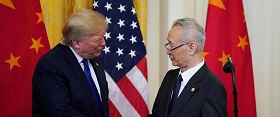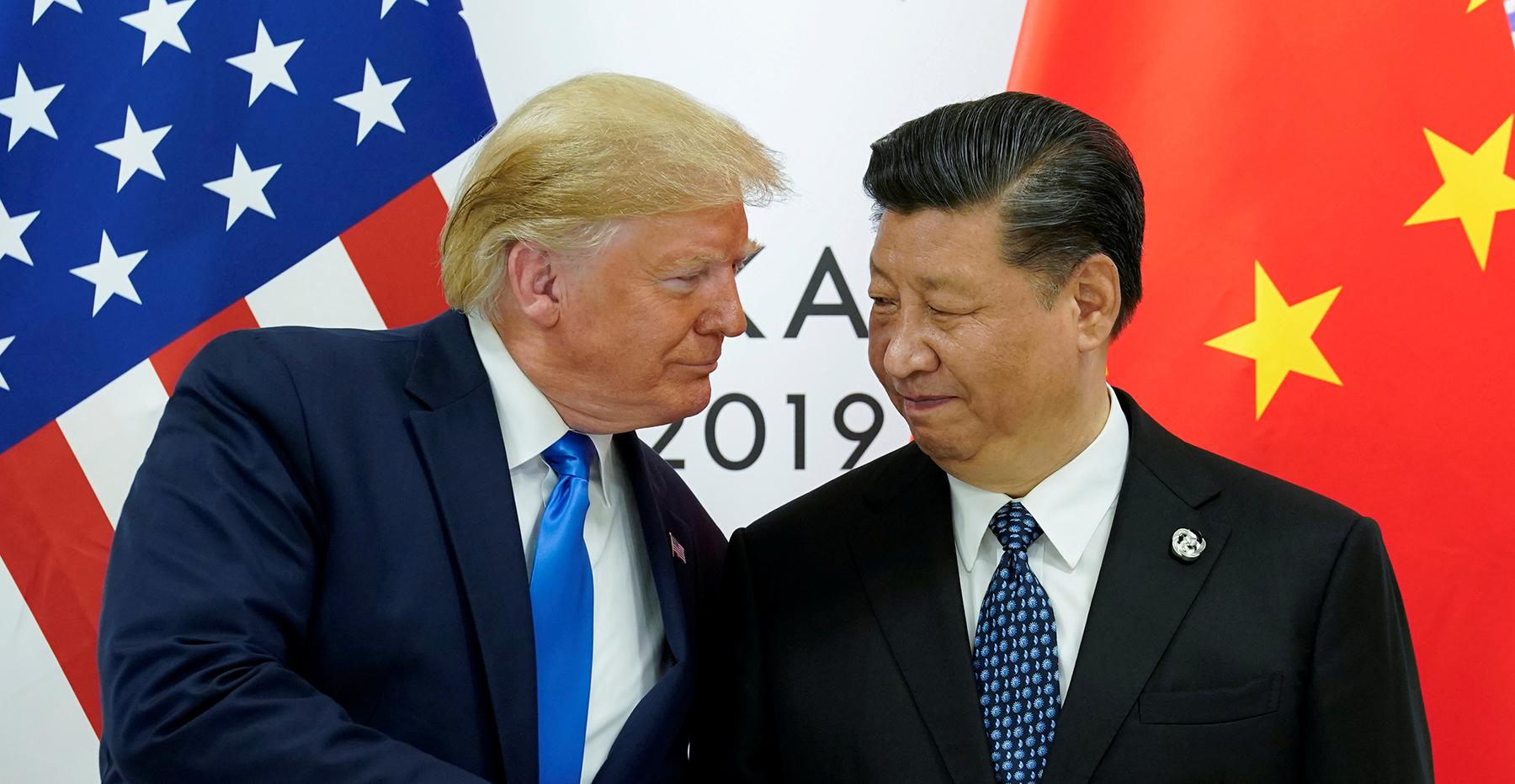China’s major international trade and investment policy ‘International Capacity Cooperation’ (ICC) is getting a rebrand. ICC emerged as the dominant trade policy coordinating China’s outbound FDI in 2015. This came as the Xi administration struggled with a slowing economy and a transition to domestic consumption and a move away from manufactured exports towards capital FDI internationally. Supply-side Reform complemented the policy when Liu He brought forth his domestic restructure economic policy in 2016 to clean up overcapacity, deleverage the financial sector and promote domestic consumption. For China’s FDI, Supply-side Reform decapacity policies were the stick to stop cheap policy investment in China and International Capacity Cooperation was the carrot to incentivise industrial investment abroad.
ICC was essentially an upgrade to the decade plus long Go Global policy which saw both domestic Chinese firms strengthened to compete in international marketplaces as well as takeovers of strategic foreign enterprises and institutions—such as the successful purchase of Kuka industrial robotics, or the unsuccessful takeover of the Chicago Stock Exchange.
China’s trade policy is becoming more sophisticated and the two-arm approach of strategically opening and closing will likely continue. However, the domestic industrial policy upon which the external trade policy is based is running into the same dead-end as Made in China 2025 did. The relabelling of International Capacity Cooperation to Overseas Economic Trade and Cooperation is only on the surface a policy rhetoric change. The rebranding of the policy under a different name does not mean that the core mission changes or that mechanisms and institutions developed to facilitate it will not remain in effective operation.
But something is changing in China’s trade and industrial policy. China’s top leadership has been genuinely surprised by the backlash against the Belt and Road Initiative, where the thought had been that ICC would be welcomed by developing economies. As ICC is still the practical policy measure that underpins Belt and Road economics in China’s trading partners, it cannot be simply unwound.
The wheels have already been set in motion, huge institutions in capital, industry and trade have been established and are coordinated by the ICC macropolicy. Macro effects of ICC will surely continue to determine the development trajectories of China’s emerging FDI partners, as well as the advanced capitalist trading economies that will have to realign their own trade and investment strategies to accommodate it. ICC is still here, but the policy rhetoric surrounding it is likely to become both much more sophisticated, and obfuscated, in the near future.
China’s major international trade and investment policy ‘International Capacity Cooperation’ (ICC) is getting a rebrand. ICC emerged as the dominant trade policy coordinating China’s outbound FDI in 2015. This came as the Xi administration struggled with a slowing economy and a transition to domestic consumption and a move away from manufactured exports towards capital FDI internationally. Supply-side Reform complemented the policy when Liu He brought forth his domestic restructure economic policy in 2016 to clean up overcapacity, deleverage the financial sector and promote domestic consumption. For China’s FDI, Supply-side Reform decapacity policies were the stick to stop cheap policy investment in China and International Capacity Cooperation was the carrot to incentivise industrial investment abroad.
ICC was essentially an upgrade to the decade plus long Go Global policy which saw both domestic Chinese firms strengthened to compete in international marketplaces as well as takeovers of strategic foreign enterprises and institutions—such as the successful purchase of Kuka industrial robotics, or the unsuccessful takeover of the Chicago Stock Exchange.
The Ministry of Industry and Information Technology played a key role in organising domestic industry under the Go Global policy, supported by the National Development and Reform Commission the state-owned enterprise overseer SASAC, and the Ministry of Science and Technology. But the trade and investment policy really belonged to the Ministry of Commerce (MofCOM), the principal institution guiding China’s implementation of International Capacity Cooperation.
But recently, the rhetoric surrounding the policy has changed. Since 2015 the guiding macroeconomic policy was named International Capacity Cooperation (国际产能合作 guoji channeng hezuo). However in late 2019, the Ministry of Commerce, particularly the Department of Foreign Investment and Economic Cooperation, dropped the name from its website, and restructured its ICC policy dissemination.
The MoFCOM FEC website is still largely organised the same way as when it was labelled ICC, but the labels have changed and the emphasis is now on the section on Overseas Economic Trade and Cooperation Zones — China’s external SEZs that are being set up along the Belt and Road economies. ICC policy content has disappeared from the MofCOM FEC website.
This is significant. ICC was the practical economic architecture underpinning the Belt and Road Initiative. ICC was how the funding was organised, how the enterprises were incentivised abroad, how the host economies were promised specific industrial transfers in MoUs, and how the central China government instructed provincial and prefectural governments on which industries to take abroad and to which states they should be paired.
International Capacity Cooperation was actually quite a clever idea. It had the potential to become an inflection point for the global development/aid regime, as well as the global trade status quo under the Bretton Woods institutions.
It was formed as China had excess capacity across all industrial sectors, GDP growth was slowing, and FDI investment into outside economies was beginning to ramp up. China was also able to advantage of a unique position within the WTO framework—the world’s workshop within the system, but able to dump commodities with impunity outside the system. And China was able to both accumulate tradeable capital behind a closed capital account while also still investing abroad.
International Capacity Cooperation was then designed to lift up whole industrial clusters from the Chinese mainland—where they were responsible for overcapacity, and transplant them as FDI into China’s emerging market trading partners — where they would count as greenfield investment and the outputs of these factories would become new exports from the host economy, back into China’s consumer markets and onwards to third economies. It was a system designed to be a network of offshore industrial bases that could operate as renminbi islands, outside the walls of China’s closed capital account, but still controllable by the Party’s financial and state-owned enterprise institutions.
Dedicated funds were established to finance the moving of industrial clusters abroad. Meanwhile provincial and prefectural governments were sticked with overcapacity reduction targets and carrotted with easy capital to take manufacturing clusters abroad. Central Asia, Middle East, East Africa and East Europe have been the key economies targeted. However the semi-open policy process means that many documents and agreements core to the ICC agenda remain classified.
Policy bank and sovereign wealth fund investment incentives are both sectoral and geographic. Geographically the provincial and prefectural level cities are organized to go out under direct policy guidance matching domestic China provinces to country level economies under the one country, one province system. Sectorally, ICC Go Global operations are coordinated by national ICC industry associations, new institutions formed on the basis of the domestic industrial association shiyedanwei (事业单位) system. These ICC Enterprise Alliances will seemingly keep their titles though, and the ICC sovereign wealth funds keep them too, so the policy name is not simply erased from China’s institutional economic history. And China public conferences on the ICC project though have proliferated in the past two years with dedicated ICC conferences for Africa and Latin America.
Ideological support and policy development from outside the Party or in clear public domain is harder to find though. Liu Yanhong at the Chinese Academy of Social Sciences recently published a paper in English which is pretty close to what we assume Party trade policy to be.
In terms of party-political process though, there is another good reason why ICC is running out of steam: the dual personnel movements of Zhang Gao Li’s retirement in 2017 and the continued decline in influence of Li Keqiang. ICC was a Li Keqiang pet project back in 2014-15 when Lou Jiwei and Zhou Xiaochuan were running a market liberal agenda at Ministry of Finance and Central Bank respectively, and when policy rhetoric seemed still genuinely concerned with ‘the decisive role of the market’.
With Zhang Gaoli pushing strong practical policy measures, and Li Keqiang heading up macropolicy direction, ICC had two of the seven Politburo Standing Committee members working on it. Times have changed. Zhang is gone amiably after doing sterling work, but Li Keqiang is now just simply too high at too young an age to justify taking out and the Party machine must leave him there. He has now been so neutered that any part of his policy portfolio is effectively tainted by his lack of political power.
China’s trade policy is becoming more sophisticated and the two-arm approach of strategically opening and closing will likely continue. However, the domestic industrial policy upon which the external trade policy is based is running into the same dead-end as Made in China 2025 did. The relabelling of International Capacity Cooperation to Overseas Economic Trade and Cooperation is only on the surface a policy rhetoric change. The rebranding of the policy under a different name does not mean that the core mission changes or that mechanisms and institutions developed to facilitate it will not remain in effective operation.
But something is changing in China’s trade and industrial policy. China’s top leadership has been genuinely surprised by the backlash against the Belt and Road Initiative, where the thought had been that ICC would be welcomed by developing economies. As ICC is still the practical policy measure that underpins Belt and Road economics in China’s trading partners, it cannot be simply unwound.
The wheels have already been set in motion, huge institutions in capital, industry and trade have been established and are coordinated by the ICC macropolicy. Macro effects of ICC will surely continue to determine the development trajectories of China’s emerging FDI partners, as well as the advanced capitalist trading economies that will have to realign their own trade and investment strategies to accommodate it. ICC is still here, but the policy rhetoric surrounding it is likely to become both much more sophisticated, and obfuscated, in the near future.







